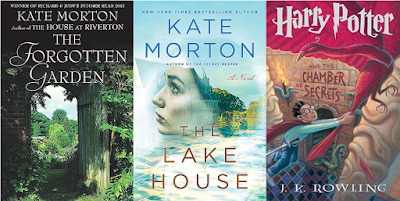In my
previous post, I had shared my thoughts on a new series I had started which pairs an Englishman with a Scot to solve highly unusual crimes.
To my utter delight, this detective duo birthed in the mind of author Oscar de Muriel is back in action with the second book in
the series: A Fever of the Blood. I liked the first book 'Strings of Murder' so much that I had to start the next book immediately!
The second book adds a layer of
complexity to the otherwise successful partnership between Frey and McGray.
With an inmate of the lunatic asylum on the run after poisoning a nurse, the
case is too close to home for McGray and this worries Frey who does not favor
his involvement in pursuing the killer. The killer was last seen in conversation with a
mute girl who hasn’t spoken in almost a decade
and this shocking development affects McGray, strongly and personally. In the
room of the killer are found traces of witchcraft. Soon, the duo find
themselves in Lancashire, infamous for the witch trials of the 1600s, on the
trail of a supposed mad man who is tracking women rumoured to be witches, with
unmatched brilliance.
Obsessed with following the killer,
McGray’s behaviour becomes increasingly erratic till Frey is left wondering
whether he has been bewitched. Frey finds himself in the unenviable position of
wondering how far and to what extent he can support McGray and where he should
draw the line. For it seems that McGray is lost to all reason.
How can a lunatic be so cold and
rational in his persecution of the women he thinks are witches? Why is he
pursuing them? What has a centuries old witch trial and a curse which was to
last 13 generations have to do with this case? Has McGray fallen under a spell?
Will this case cost McGray his mind or maybe even his life?
Two books down the lane, the
tenuous relationship between the Englishman and the Scot has firmed into a grudging
respect for each other. While I did wish for Frey to leave aside all
practicalities and follow McGray headlong into the witches’ lair at Cobden Hall
on Pendle Hill, I could not help but see the sense in his holding himself back.
Being a good friend is not about jumping to death together. Rather it takes
more courage to withdraw support and try to dissuade a person from taking
foolhardy decisions.
I sneaked in an author interview, sometime between the
two books, and happily know that with plans to have atleast nine books for
Nine-Nails McGray the chances of this emotionally tortured and impulsive man
taking his life anytime soon are quite remote. Whether he retains his sanity,
though, remains to be seen. On the other hand, I do long for Frey to do
something impulsive that would require thinking from the heart and not the
mind. Though, maybe as Caroline Ardglass tells him you need to love someone
beyond reason to be able to do so.
They
approached me, ready to put their plan into action, and I howled: 'Wait a
bloody second! Am I the only person in this room who believes murder and
torture ought to be punished?'
Caroline
looked at me with the most turbulent eyes. I had seen that expression before,
and it made me feel an awkwardness that was disturbingly familiar.
'No,'
she said, 'but you are the only person here who doesn't love someone.'
Never
in my life, had anybody's words wounded me so deeply, so swiftly.
In which case all I need to do is wait for him to fall
truly, madly, deeply in love.
If you are in the mood for crime-fiction with a distinct edge, you will not go wrong in giving the McGrey and Frey series a try!














